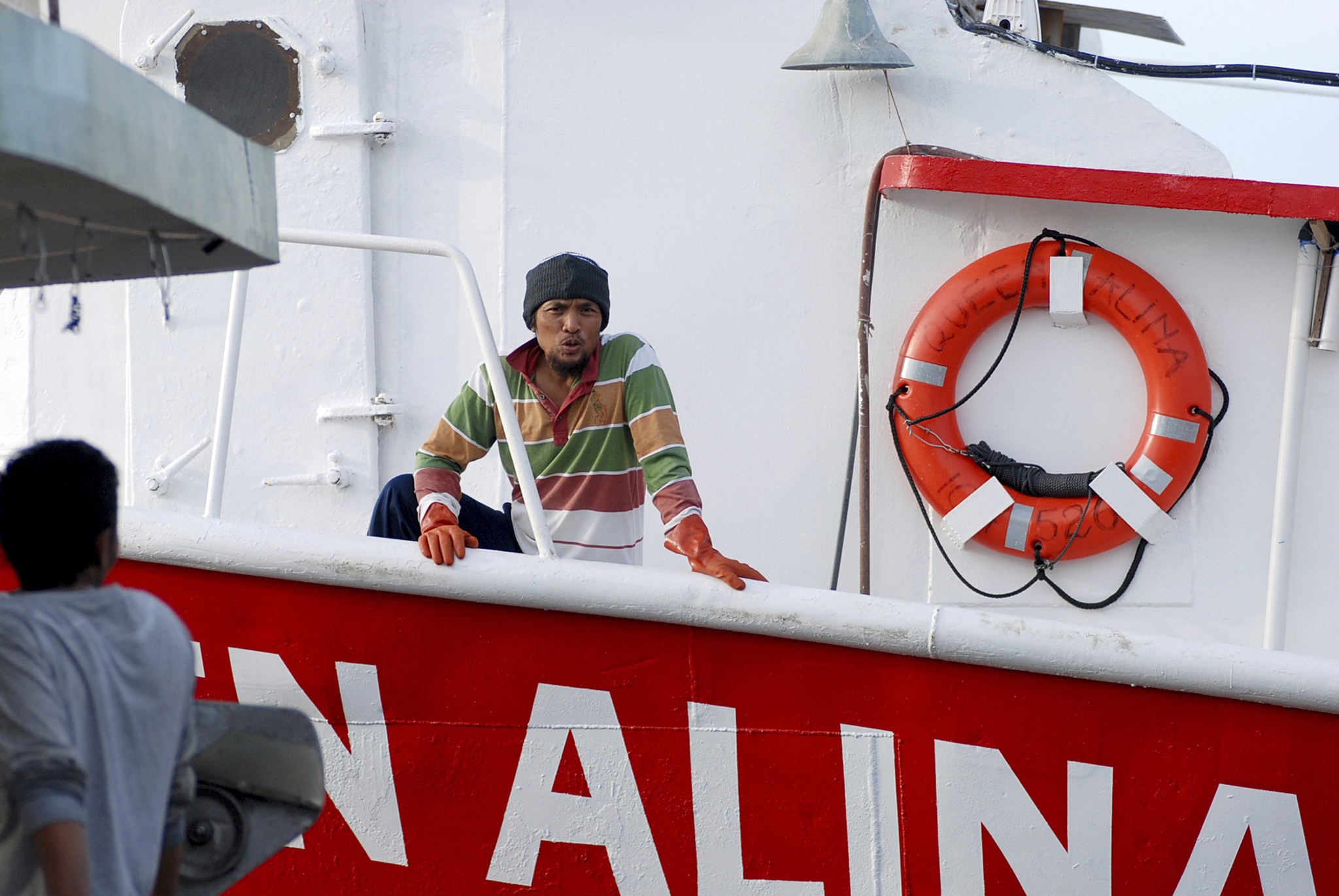HONOLULU — Hawaii lawmakers are considering a proposal with the potential to cripple the state’s commercial fishing industry after an Associated Press investigation found foreign fishermen confined to boats and living in subpar conditions.
A 2016 AP investigation found that the fishermen earned less than $1 an hour and worked without most basic labor protections while catching premium seafood. The boats often have crews of fishermen from Southeast Asia and Pacific Island nations, and the men are restricted to their vessels when docked in Honolulu because they lack proper documentation to enter the U.S.
A bill in the Hawaii Legislature aims to change rules for how fishing licenses are issued to foreign crew members that make up the majority of the state’s commercial fleet.
Now, boat owners or captains bring foreign crew members’ passports and customs documents to a state agency to get their licenses — without the fishermen present. A federal legal loophole allows foreign fishermen to work off the coast of Hawaii, but they are technically not allowed to enter the country.
The bill would require anyone seeking a commercial fishing license in Hawaii to appear in person. State Sen. Karl Rhoads says he wants to change the law so people who are not permitted to enter the U.S. cannot get a license to fish on American-flagged boats sailing from Honolulu.
“They just feel like the underdogs to me, and I don’t like to see people taken advantage of,” he said.
Despite the federal loophole, state laws require anyone applying for a fishing license to be “lawfully admitted” to the country.
U.S. Customs and Border Protection says these men are banned, raising questions about whether the state has been violating its own law for years by allowing the foreign workers to catch and sell seafood in Hawaii.
“As the state, we don’t have a lot of jurisdiction over it, and this is a way to legitimately insert ourselves into the process, because we do require a license,” Rhoads said.
The fishing industry is reviewing the measure, but if the intent is to prevent foreign fishermen from getting commercial licenses, the industry will oppose it, said Jim Cook, a member of the board of directors of the Hawaii Longline Association.
“It could lead to the use of no foreign crew in the fishery, which would be very devastating,” Cook said. “It would be similar to having no immigrant people in agriculture in Hawaii or any other part of the United States.”
Typically, when commercial fishing boats arrive in Honolulu, they are met by federal customs agents who ban foreign workers from entering the country by stamping “refused” on their landing permits.
But a written opinion by Hawaii Attorney General Douglas Chin said the state Department of Land and Natural Resources provides the landing permits as proof the fishermen are “lawfully admitted.”
Rhoads says the form allows someone to land but does not allow lawful entry as required for a license.
“Right now, it just feels like lots of gray area,” Rhoads said. “I think when there are gray areas, it’s easier to take advantage of people.”
Cook, of the fishing industry group, suggested that the fishermen who are refused entry could be granted “parole” to go to the office to apply for their licenses.
Federal customs officials referred AP to federal immigration law that says parole can be given on a case-by-case basis for “urgent humanitarian reasons” or “significant public benefit.”
Foreign fishermen usually get parole only when they have a medical emergency or they are being escorted to the airport to leave the country.
But Cook said he believes there is also a parole category for ship business. Federal officials did not immediately respond to a request for clarification on that possibility.
Two Hawaii Senate committees will hear the bill Wednesday.
Associated Press Writers Caleb Jones, Margie Mason and Martha Mendoza contributed to this report.

